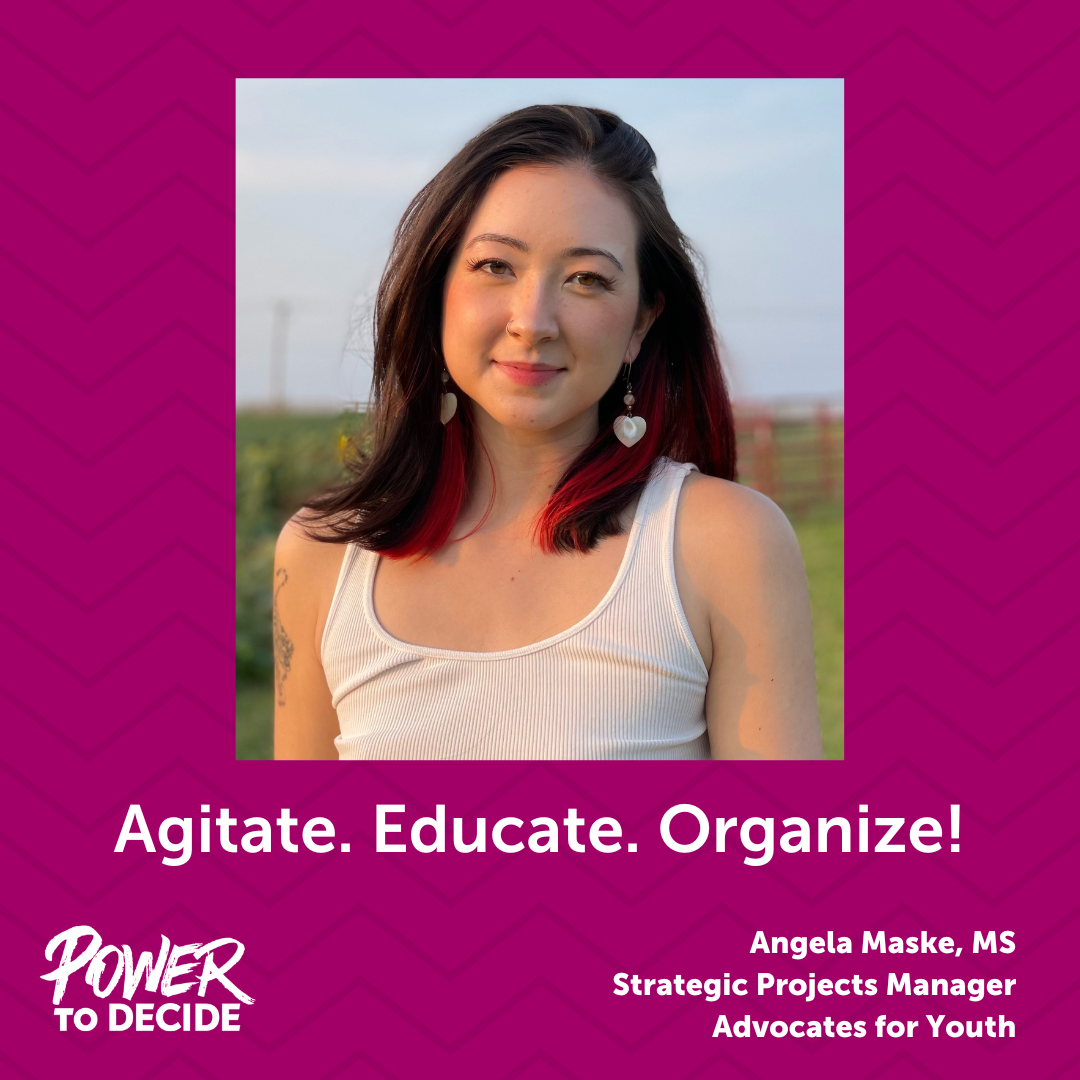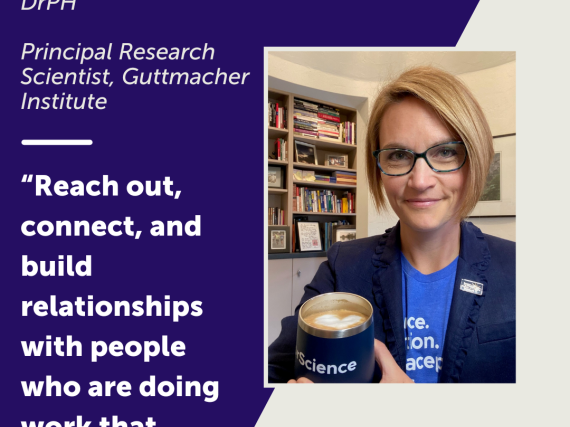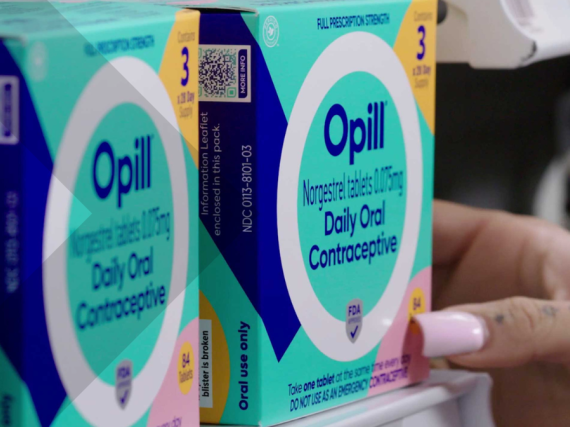November 2022 Power Player
At Power to Decide, we’re committed to uplifting the many individuals on the ground doing the work that matters most. Each month we highlight an individual who is championing the effort to support young people’s reproductive well-being. Check out this month's Power Player profile.
Angela Maske, MS (she/they)
Strategic Projects Manager, Advocates for Youth
What work have you done to ensure that all people have the information and access they need to make decisions that align with their intentions and improve their reproductive well-being?
My main focus is elevating the voices and experiences of young people to fight for better access to sexual and reproductive health care. I currently lead the #FreeThePill youth council, a group of young people between the ages of 15-22 advocating for an over-the-counter birth control pill with no age restriction, affordable, and covered by insurance. Through this work, I help to train and empower young people to share their stories, organize their peers, and advocate for improved contraceptive access both across the country and in their own communities. Excitingly, now that a pharmaceutical company has made an application to the FDA for the first ever over-the-counter birth control pill in the US, we are closer than ever to making the pill more accessible for all people who need it.
In the past, I organized for reproductive justice and sexual violence prevention on my college campus as a student at Georgetown University. The student organization I worked with, H*yas for Choice, organized for better access to free STI testing for students, free menstrual care products, and coverage for contraception under the student health insurance. I also ran a peer sexual health resource called Ask Ang to answer sexual health questions submitted by students. In my final year at Georgetown, H*yas for Choice launched the first ever emergency contraceptive delivery program to provide students with emergency contraception for free. We worked to ensure that even on a Catholic campus hostile to reproductive rights and bodily autonomy, students had as many resources as possible to control their sexual and reproductive lives.
How did you get started in your field? What is your driving force?
I first became interested in sexual and reproductive health as a young person growing up in Kentucky, where I experienced incredibly inaccurate and stigmatizing sex education. I was frustrated by the lack of accurate sexual health information and resources available to myself and my peers. So, I committed myself to support my friends in their sexual health decisions as much as possible–I became the unofficial sexual health educator for my friend group. I did my best to help empower myself and those around me with the information that we were denied by our environment.
Since that time, I’ve been driven by a desire to empower young people in particular with the sexual and reproductive health resources and information that so many are still denied. I’m also driven by the desire to combat white supremacy, misogyny, ableism, transphobia, and homophobia at every turn, but especially in this work where these systems further exacerbate access barriers.
What advice would you give to someone looking to effect change in the field that you currently work in?
Agitate. Educate. Organize! Organizing is the single most powerful tool to make positive, tangible change happen. Sometimes this looks like running a campaign to change a policy, but sometimes it just looks like having a conversation with someone in your life.
Take care of yourself. This work can be exhausting, frustrating, emotional, and for so many of us, intensely personal. I think of reproductive autonomy and sexual health work as community care. But a critical part of community care is care for one’s own physical, emotional, and mental health and wellbeing.
Why should someone care about ensuring that all people—regardless of who they are or where they live—have the information and access they need to live their best life?
When everyone is able to express healthy sexuality and have reproductive autonomy, we open the possibilities for healthier, happier communities and a healthier, happier society.
Is there a highlight of your work in conjunction with our organization that you’d like to share?
The #FreeThePill youth council is proud to share our report “BEHIND THE COUNTER: Findings from the 2022 Oral Contraceptive Access Survey.” This report highlights barriers that young people in the United States face in accessing birth control pills. It is important to uplift the experiences and stories of young people as we work toward making an over-the-counter birth control pill available, particularly the importance of it being available for all ages.


